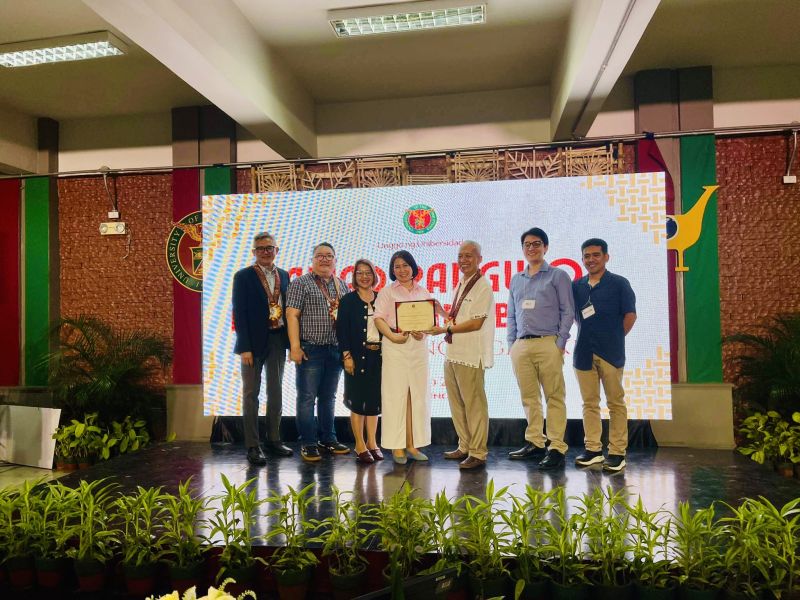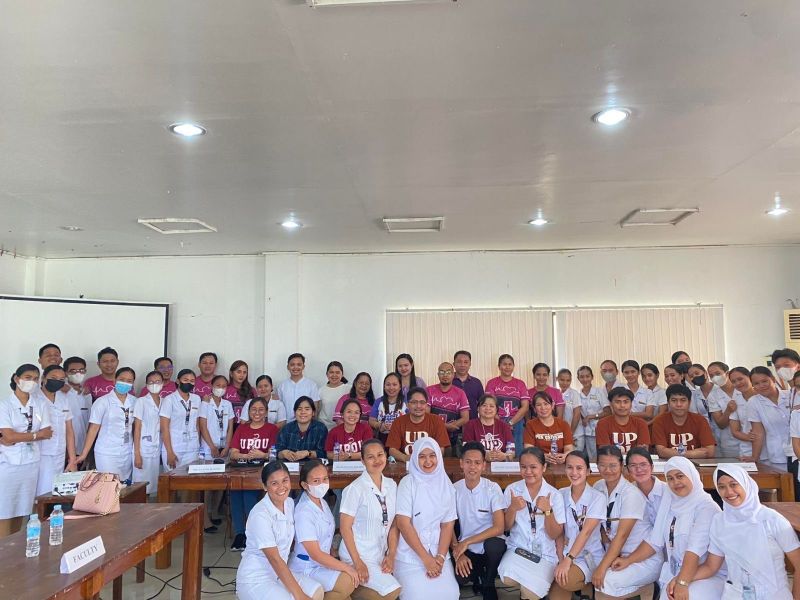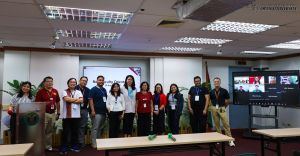While many innovations have led to new products for the consumer market, others create value by addressing the problems of the marginalized. One such innovation is the project led by Dr. Rita C. Ramos, Assistant Professor and Program Chair of the Master of Arts Nursing program at UP Open University’s Faculty of Management and Development Studies.
Her project, The Filipinized Learning Management System with Relevant Learning Experience (RLE), was recognized by the University of the Philippines (UP) for ”its outstanding innovation that upholds the ideals of honor and excellence in the service of the Filipino nation.” The recognition was conferred on 17 June 2025 during the “Gawad Pangulo para sa Natatanging Inobasyon: Paglalahad ng mga Likha”, held as part of the Linggo ng Unibersidad celebration. Her project was among the Top 8 innovations selected from 18 entries evaluated.

Dr. Rita C. Ramos (center) receives recognition at the Gawad Pangulo para sa Natatanging Inobasyon: Paglalahad ng mga Likha.
The project is a versatile, user-friendly learning platform that is available across the web, desktop, and mobile. It is designed to replicate the setup of face-to-face classes, which makes it easy to switch between home-based and in-classroom learning.
Called “Filipinized,” the platform integrates localized content and teaching methods designed for Filipino educators and students. It includes web-based RLE for healthcare learners, and can be accessed even without the internet making it useful in any setting. The platform also supports different modes of learning and reduces costs for disadvantaged schools.

The Filipinized Learning Management System team with faculty, administrators, and nursing students of Mindanao State University (MSU)-Buug during initial fieldwork in 2023.
Dr. Ramos’ journey to this recognition began with her involvement with UP’s Innovation Fellowship Program under the Technology Transfer and Business Development Office (TTBDO), where she learned the networking tools and skills necessary for innovation. As an Innovation Fellow, she was qualified to apply for the Gawad Pangulo ng Natatanging Inobasyon (GPNI).
Dr. Ramos shared, “When the call for GPNI applications opened, I submitted our entry and prepared a five-minute pitch. We presented alongside 17 other teams during the preliminary round. From there, only the top 8 finalists were selected.”
While she believed that her project had gone through the rigor of research and refinement, she also noted that other teams were quite impressive. “Having the opportunity to present was already an honor,” she said.
Dr. Ramos described the whole experience as incredibly enriching. She explained, “One of the most valuable lessons I’ve learned is how to approach project conceptualization through the lens of technology readiness levels and sustainability models. While I may have considered these factors before, witnessing their real-world application has been truly eye-opening.”
This experience affirmed her belief that collaboration is essential in innovation work. “When working toward higher levels of technological maturity, you simply can’t go it alone. I also gained valuable insights into the business aspect of innovation, which looking back, is a necessary part of any impactful project.”
As Dr. Ramos’ experience has shown, innovation does not need to be cutting-edge to be impactful. It needs to address a specific need in ways that add significant value to the users. In doing so, innovation can contribute not only to technological advancement but also inclusive development.









